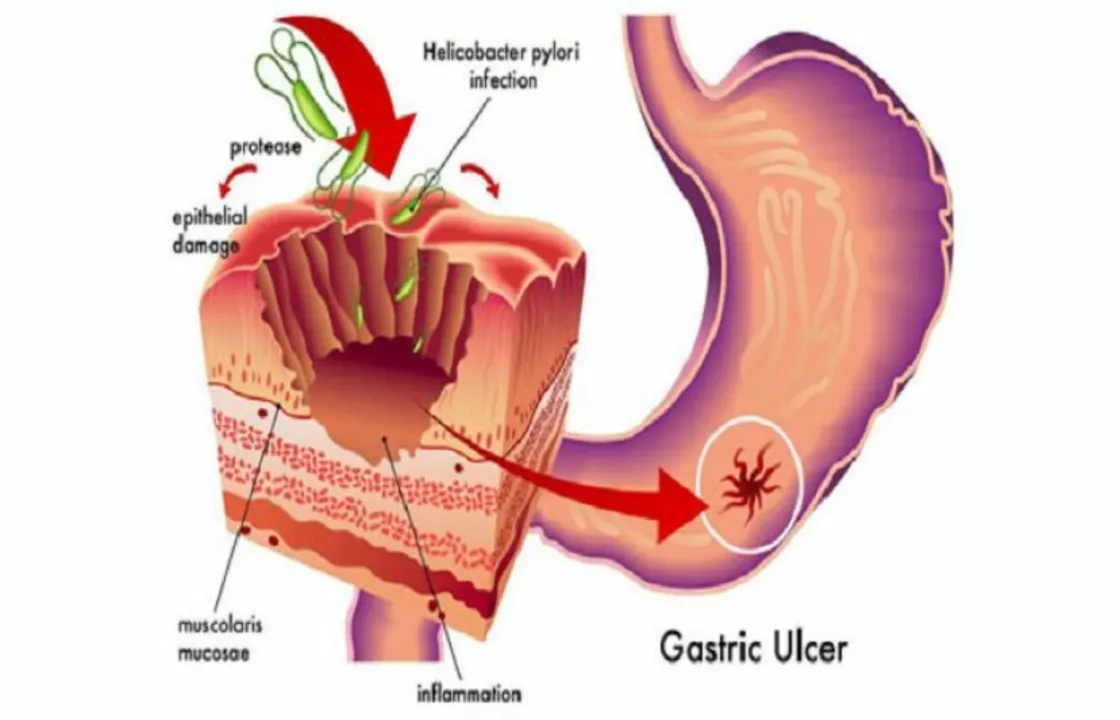Introduction to Helicobacter pylori and Ulcers
Ulcers have troubled many people around the world for a long time. In this article, we will be discussing the link between ulcers and Helicobacter pylori infection. If you have ever suffered from an ulcer or know someone who has, this article will be highly informative and might even help prevent future ulcers.
What are Ulcers?
Ulcers are open sores that can form in the lining of the stomach, duodenum (the first part of the small intestine), or the esophagus. They can be quite painful and cause discomfort in the affected area. Ulcers are usually caused by excessive acid production in the stomach, which erodes the protective layer of mucus, leading to inflammation and the formation of the sore.
Discovery of Helicobacter pylori
For a long time, ulcers were thought to be caused by stress, poor diet, and other lifestyle factors. However, in the 1980s, two Australian scientists, Dr. Barry Marshall and Dr. Robin Warren, discovered the presence of a bacterium called Helicobacter pylori in the stomachs of people with ulcers. This discovery marked a significant breakthrough in our understanding of ulcers and their treatment.
Helicobacter pylori and Its Role in Ulcer Formation
Helicobacter pylori is a spiral-shaped bacterium that inhabits the stomach lining of over half of the world's population. In many cases, it does not cause any problems or symptoms. However, in some individuals, H. pylori can lead to the development of ulcers by disrupting the protective mucus layer and causing inflammation. The bacterium also produces an enzyme called urease, which neutralizes stomach acid and allows it to survive in the harsh environment of the stomach.
Diagnosing H. pylori Infection
There are several tests available to diagnose H. pylori infection. These include blood tests, breath tests, and stool tests. In some cases, an endoscopy may be performed, during which a small sample of the stomach lining is taken for examination under a microscope. If H. pylori is found to be present, your doctor will likely recommend treatment to eradicate the bacteria.
Treating H. pylori Infection and Ulcers
The treatment for H. pylori infection usually involves a combination of antibiotics and acid-suppressing medications, such as proton pump inhibitors or H2 receptor blockers. This treatment, known as "triple therapy," is typically taken for 10-14 days and has a high success rate in eradicating the bacteria. Once the infection is cleared, the ulcer can heal, and the risk of future ulcers is significantly reduced.
Preventing H. pylori Infection
Since H. pylori is a common bacterium, it is difficult to completely avoid exposure. However, there are steps you can take to reduce your risk of infection. These include practicing good hygiene, such as washing your hands frequently and thoroughly, especially before preparing food and after using the restroom. Additionally, it is wise to avoid consuming contaminated food or water by ensuring food is cooked properly and drinking from clean water sources.
Long-term Complications of Untreated H. pylori Infection
If left untreated, H. pylori infection can lead to serious complications. Aside from causing ulcers, the bacterium has been linked to an increased risk of stomach cancer and a rare type of lymphoma called mucosa-associated lymphoid tissue (MALT) lymphoma. Therefore, if you suspect that you may have an H. pylori infection, it is crucial to consult your doctor and seek appropriate treatment.
Conclusion
In conclusion, the link between ulcers and Helicobacter pylori infection is well-established, and understanding this connection has led to more effective treatments for those suffering from ulcers. By maintaining good hygiene practices and seeking medical attention if you suspect an infection, you can reduce your risk of developing ulcers and other complications associated with H. pylori.


This is solid info. I never knew H. pylori was so common. My uncle got treated for it last year and his ulcers vanished. No more stress blame.
Just clean antibiotics.